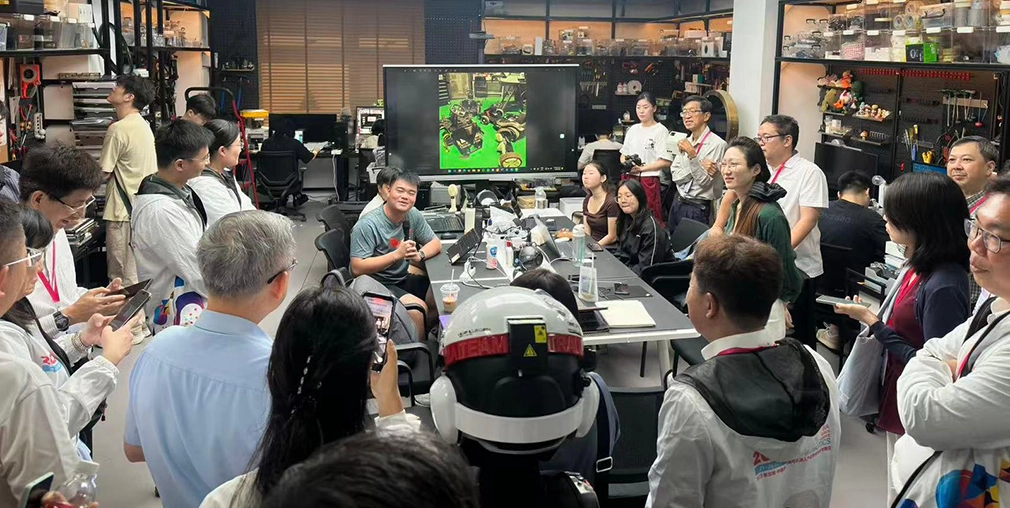Your gateway
to a professional IT career


Empowering innovators. Leading change.
Extra accreditations
Every student earns certifications from heavyweights like Google Cloud, Microsoft, Oracle Academy, and SAS. Boast valuable skills & experience recognised beyond the classroom.
Multi-pathway to success
Choose your path to a successful IT career in your final year— one-year internship, develop your startup idea or prepare for further studies through the university pathway.
Get a scholarship
Seek the prestigious CSIT-Nanyang Scholarship for exemplary O-level and year 2 students. Or pursue IT excellence with NYP-Industry and NYP Scholarships.
Thrive both professionally and personally

20 Recognised Certifications to Add to Your NYP IT Diplomas
Be professionally certified as ethical hackers, python programmers & data analysts.
Passed your O-level computing subject? Get guaranteed 60 curriculum hours exemptions
Save your time on the things that matter. Additional exemptions will be considered.
Find out moreGain mastery of Snowflake's Data and AI Platforms
Final-year Diploma in Applied AI & Analytics (DAAA) students will acquire essential skills to harness cutting-edge technology on this innovative, industry-leading platform that excels in seamless integration, scalability, and advanced analytics.
Check out DAAAThrive both professionally and personally

Passed your O-level computing subject? Get guaranteed 60 curriculum hours exemptions
Save your time on the things that matter. Additional exemptions will be considered.
Find out more
20 Recognised Certifications to Add to Your NYP IT Diplomas
Be professionally certified as ethical hackers, python programmers & data analysts.
Find out moreChart your course to success

Applied AI & Analytics (C43)
ELR2B2-C (2025 JAE): 5 - 9 pointsELMAB3 (2025 PFP): 4 - 9 points

Business & Financial Technology (C35)
ELR2B2-C (2025 JAE): 6 - 14 pointsELMAB3 (2025 PFP): 5 - 8 points

Cybersecurity & Digital Forensics (C54)
ELR2B2-C (2025 JAE): 5 - 11 pointsELMAB3 (2025 PFP): 5 - 9 points

Information Technology (C85)
ELR2B2-C (2025 JAE): 7 - 16 pointsELMAB3 (2025 PFP): 4 - 10 points

Common Business & Technology Programme (C24)

Common ICT Programme (C36)
ELR2B2-C (2025 JAE): 6 - 16 pointsELMAB3 (2025 PFP): 3 - 10 points
Immersive learning that taps the power of industry
Glimpse at what we've done

From Dreamer to Doer: The Journey of Siew Wei Heng, Technopreneur and CSIT-Nanyang Scholar
Read how this stellar alumnus from the Class of 2025 made his final year project, Procolink, a technopreneurship venture.

What My Overseas Internship in Information Technology at Shanghai Taught Me
In Shanghai, Joon Jun Han (Diploma in Information Technology, Class of 2026) discovered a new classroom that reshaped his perspective on learning beyond Singapore.

Beyond the Comfort Zone: An Internship with J.P. Morgan
Shrruti Madhusudhan (Diploma in Business & Financial Technology, Class of 2026) shares how she pushed through challenges and made the most of her time working with colleagues at a multinational company.
Secure your future with the exclusive
CSIT-Nanyang Scholarship
Enjoy leadership opportunities and learning experiences with this bond-free scholarship, offered in partnership with the Centre for Strategic Infocomm Technologies (CSIT).

Wong Min Ern Megane (NUS, Bachelor in Information Security)
Despite enrolling in her second EAE choice at NYP, Megane had an incredible experience and performed exceptionally well.

Shermaine Peh Cher Min (NUS, Bachelor in Computer Science)
CSIT-Nanyang Scholars like Shermaine enjoy a competitive edge when advancing to university as CSIT-Undergraduate Scholars.

Lee De Sheng Royson (Research Scientist at Samsung AI)
Royson, one of the first CSIT-Nanyang Scholars, completed a PhD at the University of Cambridge and is now a Research Scientist at Samsung AI.
Explore. Learn. Grow.
















